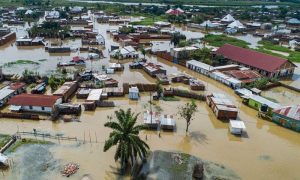
Mogadishu, 08 October 2015 – Kenya has formally rejected Somalia’s boundary dispute case before the International Court of Justice (ICJ), terming it “invalid.”
Attorney-General Githu Muigai says in preliminary objections filed to the ICJ that Mogadishu’s contest to have Kenya-Somalia coastal boundaries adjusted is invalid.
This is because an agreement exists between the two countries to progressively solve the matter through negotiations and not courts.
“Litigating this complex issue before the court is clearly contrary to the 2009 MoU. Somalia’s case is invalid and Kenya is confident that the court will agree with its submissions,” Kenya says in its response to the case filed in July.
“The two governments must find a solution through amicable agreement, under international law. It is their obligation to do so.”
OIL DEPOSITS
Kenya is responding to a case in which Somalia has gone to the ICJ to demand that its boundary be adjusted to give Mogadishu a huge chunk of it with significant oil deposits.
The area in contest is about 100,000 square kilometres, forming a triangle east of the Kenya coast.
In 2009, Kenya and Somalia reached an MoU, which was then deposited to the UN in 2011.
The agreement had stated that the border would run east along the line of latitude although further negotiations were to be held through the UN Commission on the Limits of the Continental Shelf.
This agreement also stated that maritime boundary adjustments would only occur after the commission had established the outer limits of shelf and that both sides would avoid courts as much as possible over the matter.
While Kenya accuses Somalia of reneging on the agreement, Somalia says the deal won’t hold because its cabinet and MPs rejected it.
In 2012, Somalia accused Kenya of awarding offshore oil and gas blocks illegally to multinationals Total and Eni, an accusation Kenya rejected.
Prof Muigai told the court on Wednesday that that agreement should still guide negotiations on the matter.
But Somalia has charged that only the ICJ, a UN court that handles inter-state disputes, would resolve it because the two sides had exhausted all diplomatic channels.
FAKE CLAIM
“The issue of the Kenyan government violations against our territorial waters has continued for a long time, so it’s the right time to end its fake claim in court,” Somalia’s Information Minister Mohammed Maareeye argued in July this year.
Last year, Somalia went to the ICJ, based in The Hague, to demand that the coastal boundary with Kenya be adjusted, after accusing Kenya of encroaching on its territory for oil exploration.
In July this year, Mogadishu formally filed the case and Kenya had eight months to respond.
If Kenya succeeds in opposing the case at this stage, it means the case will collapse and the two parties will have to return to negotiations. If it proceeds, both sides will have to defend their positions and have the judges decide.
NO APPEALS
ICJ verdicts normally do not provide for appeals, meaning Kenya would have to live with the binding decision, which may mean losing a significant chunk of its sea territory. It is this reason that Kenya is keen to have the matter resolved out of court.
Somalia’s claim, titled “A dispute concerning maritime delimitation in the Indian Ocean”, wants the ICJ to “the complete course of the single maritime boundary dividing all the maritime areas appertaining to Somalia and to Kenya in the Indian Ocean, including the continental shelf beyond 200 nautical miles.
Somalia is basing its arguments on Articles 15, 74 and 83 of the 1982 United Nations Convention on the Law of the Sea.
The cited articles state that where two states share coasts adjacent or opposite each other, neither state should extend territorial boundaries beyond the median line “every point of which is equidistant from the nearest points on the baselines from which the breadth of the territorial seas of each of the two states is measured” except where there is an agreement to do so.
In Kenya’s situation, it means Somalia wants the boundary to extend diagonally to the south at Kiunga into the sea, and not eastwards as it is today.
by Daily Nation
_____________________________________________________________________________________
Xafiiska Wararka Qaranimo Online | Mogadishu, Somalia
_____________________________________________________________________________________Advertisement
_____________________________________________________________________________________







